Smart Car Buying: How Dealer Invoice Prices Can Save You Money
April 21, 2023
I am a serial entrepreneur and a consumer advocate. When I’m not helping car buyers, I love working on ventures that have a positive impact. I run a cause marketing agency and serve on the board of Vayu Global Health where we are disrupting the medical industry and preventing the needless deaths of mothers and babies during childbirth.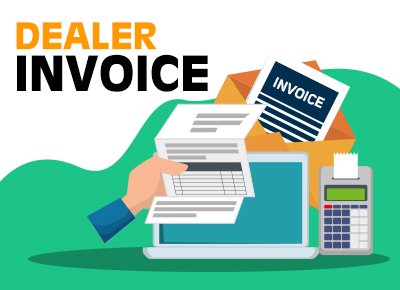

Buying a car from a dealership is an extensive process. You must find the vehicle you want, compare prices at different dealerships, and negotiate with the dealer.
Knowing the dealer invoice price is crucial to finding the best deal.
The dealer invoice price is what the dealer paid the manufacturer for the car. Most dealerships do not directly disclose the invoice price to buyers.
We're here to help you find and understand the dealer cost so you have more leverage in negotiations.
Table of Contents
- Invoice Price Explained Video
- What Is the Dealer Invoice (Dealer Cost)?
- Why Do Buyers Need to Know the Dealer Invoice?
- Negotiating With Dealer Invoice
- How To to Find the Dealer Invoice Price
- Are Websites That Show Invoice Prices Accurate?
- Why Do Dealers Pay Below Invoice Price?
- Best Car Deals by Category
- Frequently Asked Questions
Invoice Price Explained Video
What Is the Dealer Invoice (Dealer Cost)?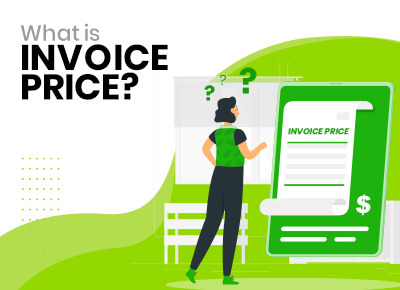
The dealer invoice price refers to the cost the dealer pays to the manufacturer for the vehicle. This figure is crucial for buyers because it gives a baseline above which the dealer adds their markup. Knowing the dealer invoice price can give you a significant advantage during negotiations, as it reveals the dealer's potential profit margin.
However, the written dealer cost is usually higher than what the dealer pays the manufacturer. The manufacturer often provides several discounts to the dealer that are not on the invoice. The invoice price does not reflect dealer cash incentives or other discounts, including manufacturer-to-consumer rebates.
Why Do Buyers Need to Know the Dealer Invoice?
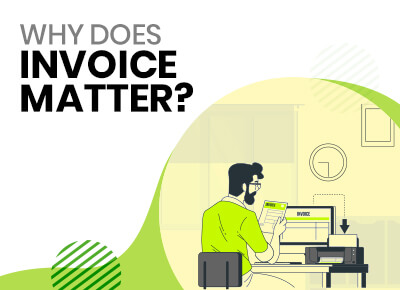 Like any other business, dealerships are trying to make a profit. It only makes sense that they will sell vehicles for well above the invoice cost. In some cases though, dealerships will sell at or below the invoice price to move vehicles off of the lot or because of other incentives.
Like any other business, dealerships are trying to make a profit. It only makes sense that they will sell vehicles for well above the invoice cost. In some cases though, dealerships will sell at or below the invoice price to move vehicles off of the lot or because of other incentives.
As a buyer, you must keep in mind that the dealer probably paid less than the invoice price. This means that if the dealer sells at or below the invoice cost, they are likely still making a profit.
The reason you want to know the invoice price is that it is a powerful negotiation tool. When you know the dealer's invoice, you can leverage that information to get the best deal. You can get prices from multiple dealers and ensure you are comparing similarly equipped vehicles with the same set of options. It also helps to know which questions to ask when buying a new car.
Negotiating With Dealer Invoice
Armed with the dealer invoice price, you can confidently enter negotiations. Here are some tips:
- Start Below the Invoice Price: Begin your negotiation below the dealer invoice price. This gives you room to move up while still keeping the final price within a reasonable range.
- Discuss Rebates and Incentives: Be aware of any manufacturer rebates or incentives. These can reduce the dealer's cost and should be factored into your negotiation.
- Be Firm but Fair: Show the dealer that you are informed and serious about getting a fair deal. However, maintain a respectful and professional demeanor.
Additional Costs to Consider
Remember, the dealer invoice price is not the only cost associated with buying a car. Other expenses include:
- Destination Fees: This is the cost of transporting the vehicle from the factory to the dealership.
- Dealer Preparation Fees: These are charges for preparing the car for sale, such as cleaning and inspections.
- Optional Features and Packages: Additional features and packages can significantly increase the final price of the vehicle.
How To to Find the Dealer Invoice Price
There are several other ways to go about finding the dealer invoice, including:
Asking the Sales Manager for the Dealer Invoice
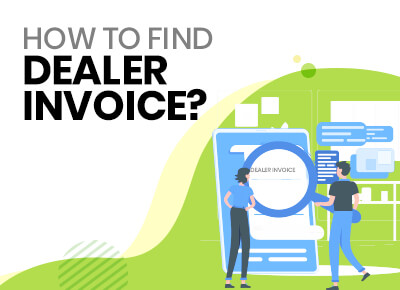 One way to get the invoice price is to directly ask the sales manager at the dealership. Don't be afraid to ask directly. To show your knowledge and stance, refer to it as the "on-the-road" or "out-the-door" price. Just asking for the invoice price makes it seem like you are looking for a fair deal.
One way to get the invoice price is to directly ask the sales manager at the dealership. Don't be afraid to ask directly. To show your knowledge and stance, refer to it as the "on-the-road" or "out-the-door" price. Just asking for the invoice price makes it seem like you are looking for a fair deal.
However, it's not always easy to get the salesperson to share the factory invoice. However, this is a red flag and you should continue to explore other dealerships that will share this information directly.
Platforms like the Costco Auto Program are transparent and will provide the invoice price on a vehicle.
Auto Invoice Price Websites
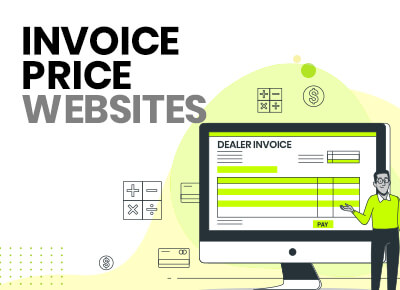
In addition, or even before asking the dealership, you should perform some of your own research on the factory invoice. Sites to consult include:
- Edmunds: Head over to Edmunds (or read my review) and look up the True Market Value of the vehicle. This is not the invoice, but it's a reliable pricing tool that will give you a good idea of the invoice price.
- CarsDirect: CarsDirect is another site that offers a vehicle search page that will show the MSRP and estimated invoice price. Check out my full review here.
Automotive enthusiasts and industry insiders often share insights on forums and blogs. These can be valuable sources of information about dealer invoice prices and negotiation strategies.
Are Websites That Show Invoice Prices Accurate?
Websites that display estimates of invoice prices are very helpful for your research while shopping for a new car.
However, there are additional charges these websites cannot account for, including: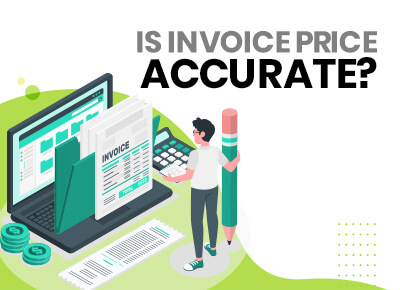
Mid-Year Pricing Adjustments
Most manufacturers will adjust their prices halfway through the model year. It's not easy for third parties to know the timing or amount of mid-year adjustments since manufacturers don't always share this.
The mid-year adjustment can actually account for price differences between one vehicle and another.
District Advertising Costs
Dealerships can opt into regional advertising groups from the manufacturers. The district advertising costs cover TV and newspaper ads and are included directly on the new vehicle invoice.
The actual cost of being in the regional marketing group varies by state and city, so it's impossible to account for when doing online research.
Online Marketing Fees
Direct advertising is only one side of the spectrum. Manufacturers also offer online resources to dealerships at a cost. The manufacturers charge the online marketing fees directly to dealerships on the new vehicle invoice.
While you cannot determine the exact invoice price, or even what the dealer actually paid, having a general idea of the factory invoice is very important when buying from a dealership. Knowing the invoice price and how it works will help you negotiate the best deal.
Why Do Dealers Pay Below Invoice Price?
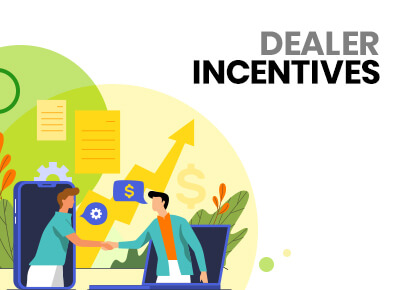 Dealers end up paying below the official invoice price for several reasons. Of course, dealers can negotiate with manufacturers to get a deal. Additionally, there are many dealer incentives, such as:
Dealers end up paying below the official invoice price for several reasons. Of course, dealers can negotiate with manufacturers to get a deal. Additionally, there are many dealer incentives, such as:
Dealer Rebates
Just like manufacturers offer cash back offers to buyers, they also offer manufacturer-to-dealer cash back programs on certain models. These rebates allow dealers to get a certain amount of cash back for each vehicle they sell that's part of the rebate program. Manufacturers will often offer these programs for models that are soon to be replaced or for slow-moving vehicles.
Holdback
Manufacturers will also offer a "holdback" payment to dealerships. Holdback is a payment to the dealer to offset the interest paid by the dealer to finance his inventory. When you add up the holdbacks, they can reduce the dealer cost by 2-3%. The holdback money often covers dealer overhead and may allow them to sell below the factory invoice.
To learn more car dealer lingo, check out our car terms glossary.
Sales Incentives
Dealers can earn a lot of money by hitting sales goals for the month, quarter, or year. When you shop near the end of those target dates, you can save big because dealerships may be more willing to negotiate so they can hit their goal. Dealers can get bonuses from manufacturers for selling certain models based on consumer reviews.
Best Car Deals by Category
Frequently Asked Questions
How do I find the dealer invoice price?
Start by researching online for the MSRP and car invoice price. The information you find online is an estimate, but it can help you get an idea of the invoice price. Then, you should ask the dealership directly.
Why is dealer invoice price important?
The reason you want to know the invoice price is that it is a powerful negotiation tool. When you know the dealer's invoice, you can leverage that information to get the best deal.
What's the average difference between the MSRP and dealer invoice?
Typically, the dealer invoice is 1-3% below the MSRP. Keep in mind, the dealership likely paid below the invoice price as well.
Do dealers actually pay the invoice price?
Not always. When you consider the potential deals and discounts, dealerships often pay less than the price on the invoice.
Do dealers ever sell below invoice?
While dealers typically sell above the invoice to maximize profit, they will sell below it on occasion. They are most likely to sell below the invoice for slow-moving vehicles or to hit their sales targets (near the end of a quarter or year).
Posted in Car Buying Tips |




